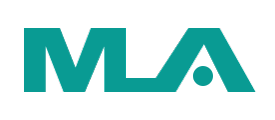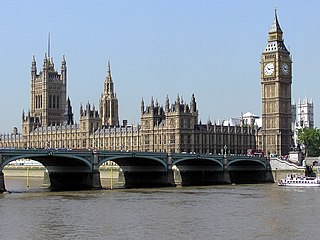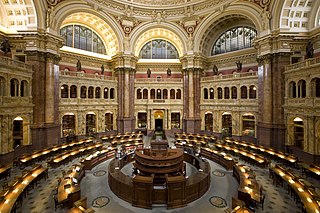
A librarian is a person who works professionally in a library providing access to information, and sometimes social or technical programming, or instruction on information literacy to users.

The Congressional Research Service (CRS) is a public policy research institute of the United States Congress. Operating within the Library of Congress, it works primarily and directly for members of Congress and their committees and staff on a confidential, nonpartisan basis. CRS is sometimes known as Congress' think tank due to its broad mandate of providing research and analysis on all matters relevant to national policymaking.

The Royal College of Physicians of London, commonly referred to simply as the Royal College of Physicians (RCP), is a British professional membership body dedicated to improving the practice of medicine, chiefly through the accreditation of physicians by examination. Founded by royal charter from King Henry VIII in 1518, as the College of Physicians, the RCP is the oldest medical college in England.
The American Library Association (ALA) is a nonprofit organization based in the United States that promotes libraries and library education internationally. It is the oldest and largest library association in the world.
The Chartered Institute of Library and Information Professionals is a professional body for librarians, information specialists and knowledge managers in the United Kingdom.

In British politics, parliamentary select committees can be appointed from the House of Commons, like the Foreign Affairs Select Committee; from the House of Lords, like the Delegated Powers and Regulatory Reform Committee; or as a joint committee of Parliament drawn from both, such as the Joint Committee on Human Rights. Committees may exist as "sessional" committees – i.e. be near-permanent – or as "ad-hoc" committees with a specific deadline by which to complete their work, after which they cease to exist, such as the Lords Committee on Public Service and Demographic Change.

The Medical Library Association (MLA) is a nonprofit educational organization with more than 3,400 health-sciences information professional members.

The State Library of New South Wales, part of which is known as the Mitchell Library, is a large heritage-listed special collections, reference and research library open to the public and is one of the oldest libraries in Australia. Established in 1869 its collections date back to the Australian Subscription Library established in the colony of New South Wales in 1826. The library is located on the corner of Macquarie Street and Shakespeare Place, in the Sydney central business district adjacent to the Domain and the Royal Botanic Gardens, in the City of Sydney. The library is a member of the National and State Libraries Australia (NSLA) consortium.

The House of Commons Library is the library and information resource of the lower house of the British Parliament. It was established in 1818, although its original 1828 construction was destroyed during the burning of Parliament in 1834.

The Parliamentary Office of Science and Technology (POST) is the Parliament of the United Kingdom's in-house source of independent, balanced and accessible analysis of public policy issues related to science and technology. POST serves both Houses of Parliament.
REFORMA: The National Association to Promote Library & Information Services to Latinos and the Spanish Speaking, more commonly known as REFORMA, is an affiliate of the American Library Association formed in 1971 to promote library services to Latinos and the Spanish-speaking. It is registered in Washington, D.C. as a 501(c)(3) nonprofit organization.

The House of Lords Library is the library and information resource of the House of Lords, the upper house of the Parliament of the United Kingdom. It provides Members of the House and their staff with books, Parliamentary material and reference and research services.

The Library of Congress (LOC) is a research library in Washington, D.C. that serves as the library and research service of the U.S. Congress and the de facto national library of the United States. Founded in 1800, it is the United States' oldest federal cultural institution. The library is housed in three elaborate buildings on Capitol Hill, with a conservation center in Culpeper, Virginia. The library's functions are overseen by the Librarian of Congress, and its buildings are maintained by the Architect of the Capitol. The Library of Congress is one of the largest libraries in the world. Its collections contain approximately 173 million items, and it has more than 3,000 employees. Its collections are "universal, not limited by subject, format, or national boundary, and include research materials from all parts of the world and in more than 470 languages".
The American Indian Library Association (AILA) is an affiliate of the American Library Association (ALA), and is a membership action group that focuses on the library-related needs of Native Americans and Alaska Natives. The organization's members consist of both individuals and institutions that are interested in improving library services to Native American people in any type of library in the United States.
The House of Commons Commission is the overall supervisory body of the House of Commons administration in the United Kingdom. The commission is a corporate body established by the House of Commons (Administration) Act 1978. The commission continues to exist during the dissolution period and the person who was Speaker continues in office as a member of the commission until a speaker is chosen by the new parliament.
The Southeastern Library Association (SELA) is an organization that collaborates with different library associations within the Southeastern United States, including Alabama, Arkansas, Florida, Georgia, Kentucky, Louisiana, Mississippi, North Carolina, South Carolina, Tennessee, Virginia, and West Virginia.
Michael John Brudenall was an Australian librarian and library educator. He contributed to the development of library technician education and employment in Australia. He planned the Commonwealth Parliamentary Library for the new Parliament House building in Canberra and advocated for stronger collaboration between the parliamentary libraries in the Asia Pacific region.
David Menhennet CB was a British librarian. As librarian at the House of Commons Library from 1976 to 1991, he oversaw a period of modernisation and other improvements to the library, transforming it into a modern research facility.
Roger Hugh Vaughan Charles Morgan was an English librarian who spent four decades in the Houses of Parliament. He is credited with modernising the House of Lords Library as head librarian from 1977–91.
Section 4 of the Education Act 1944 set-up two Central Advisory Councils for Education, one for England and one for Wales and Monmouthshire. The purpose of the councils was to advise the Minister of Education upon matters connected with educational theory and practice, the advices were used to refine educational policy and develop educational institutes. Starting with a terms of reference, the councils would carryout an enquiry and produce a report which would be submitted to the Minister of Education who could choose to publish the report.









